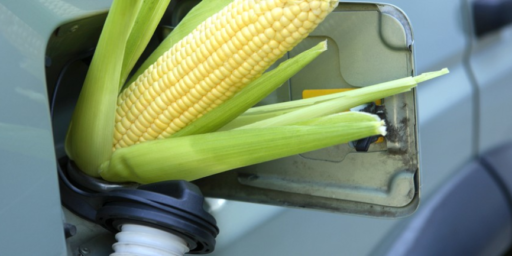API Blogger Conference Call
Yesterday I, along with a half dozen other bloggers mostly vastly better informed than I, took part in a blogger conference call hosted by the American Petroleum Institute. The occasion for the call was the API’s publication of its annual report on the state of the petroleum industry for 2007. Here are the links for the press release, summary, and the API’s web site:
Press Release for Annual Report
Summary of Annual Report
API Web Site
Participants in the conference call included Red Cavaney, API’s President and CEO, John Felmy, API’s Chief Economist, and Ron Planting, API’s Manager of Statistics.
There were several items in the report that I found interesting and thought I might pass along.
First, U. S. oil consumption is down. It’s been flat or decreasing for the last three years:
In 2007, total domestic petroleum deliveries were flat–marking the third year in a row for which they experienced only minimal growth or outright declines. (“Deliveries” is an indicator of consumption.) Deliveries for the year averaged 20.7 million barrels per day, the same as in 2006, following a decline of 0.6 percent in 2006 and an increase of just 0.3 percent in 2005. For the fourth quarter alone, deliveries fell 0.4 percent from a year earlier.
Also note that, since the U. S. population is rising, if U. S. oil consumption is flat or falling, the per capita consumption of oil is falling more sharply.
There are a number of possible reasons for this. Most importantly, probably, are economic reasons: as the cost goes up, consumption goes down. That’s interesting because it flies in the face of the prevailing wisdom i.e. that the demand for oil in the U. S. is downwards inelastic relative to price. That has policy implications. Other possible reasons include the continuing transition of the U. S. economy away from manufacturing to services, increased use of gasohol, or increased efficiency of the total auto and truck fleet as the proportion of more efficient vehicles in the fleet increases over time.
The second item that I found interesting is that U. S. domestic refinery capacity is increasing. Although we haven’t built a new or so-called “green field” refinery since 1976, existing refineries are being expanded or improved to increase capacity.
Increases in consumption are mainly in fuel oil, used for heating, mostly in the Northeast, and by diesel-powered vehicles:
The largest volumetric increase among the major products for 2007 was for distillate fuel oil, deliveries of which rose 1.5 percent or more than 60,000 barrels per day, reflecting rising diesel demand and greater winter heating needs than in 2006. Deliveries of jet fuel barely rose 0.1 percent for the year, while deliveries of residual fuel oil jumped 6.6 percent.
That, too, is significant for policy reasons.
Domestic oil production is increasing:
U.S. crude production for 2007 rose 1.1 percent to 5.16 million barrels per day. While this was the first time since 1991 that annual domestic production rose over the prior year, this was at least in part the result of comparisons against disrupted 2006 production offshore and in Alaska. Still, crude oil production increases were seen for 2007 in the Rocky Mountain states and the Midwest as the number of U.S. oil wells completed reached the highest level in more than two decades.
The last item that I found interesting came out in the discussion i.e., it isn’t included in the report. Ethanol isn’t pumped through the existing pipeline system. That’s because the pipelines have a certain amount of water in them, unlike oil, ethanol absorbs water and, consequently, its physical properties will change as it mixes with water, and that causes problems in the lines. Consequently, for ethanol to arrive at the refineries for mixing it must be transported by rail or truck. As the amount of ethanol we use increases as required by laws passed by Congress the logistical problems already being seen in this transportation are bound to increase. The bottleneck keeping gas from getting to your filling station may not be refining capacity but logistical problems in getting ethanol to the refineries.
This is the second API blogger conference call in which I’ve participated and it’s pretty likely I’ll be taking part in more. If you’ve got questions you’d like me to ask, leave ’em in the comments. Serious questions, please, not questions of the “when did you stop beating your wife” sort.






Regarding the ethanol in pipeline issue, these links may be of interest:
Link 1
Link 2
Link 3
Thanks, anon. Very helpful.
Nice information on the energy front. I wonder with ethanol having to be driven to refineries, what the real cost/efficiency benifit of producing the stuff in such large amounts.
I’m for drilling while were waiting for this miraculous alternate fuel bonanza the eco-left keeps talking about. As new sources of alternate fuels become available and on line we can close some fields and platforms to match it and still commit to reducing our carbon footprint.
I suppose such a prudent, and in view of potential war, such reasonable measures wil be rejected by the eco-left and their couwardly political servants.
I’ve argued for years that the real reason no new refineries were being built is that the market through low refining profits was sending the message that we did not need any new refineries.
That position still looks valid and all the arguments that it was government keeping new refineries from being built still looks like simple political posturing.
Ask their take on the Bali conference and how they are preparing for a likely national cap-and-trade emissions policy once Bush retires.